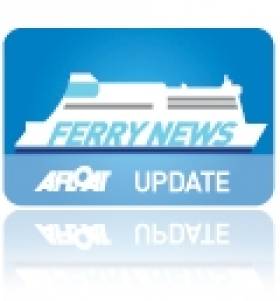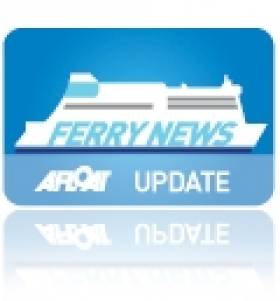Displaying items by tag: Southern Corridor
Stena Line to Resume ‘Express’ Service
In addition to the 'Express' service the St. Georges Channel route is served by the year-round operated conventional ferry, Stena Europe (1981/24,828 grt). The 1,386 passenger / 564-vehicle ferry recently underwent a £2m refurbishment and takes a more leisurely passage time of 3 hours 30 minutes.
For information on both fast-ferry and conventional ferry sailing schedules click HERE.
Stena's Southern Sailings
In the meantime freight-only ferry Stena Seafarer is operating the St. Georges Channel route having arrived at Rosslare on a repositioning voyage from Belfast on 29th March.
Stena Seafarer (1975 / 10,957grt) was one of a trio of freight-ferry sisters that served the Larne-Fleetwood port route until its closure in December. Like her sisters Stena Leader (1975 / 12,879grt) and Stena Pioneer (1975 / 14,426grt) they were built at the West German shipyard of J.J. Sietas in Hamburg.
Stena Seafarer's sisters remain laid-up in Belfast and with each vessel over 35 years in service it would seem likely there are nearing the end of their careers, at least on the Irish Sea.
To provide additional passenger capacity the Stena 'Express' fast-ferry service will return to the southern corridor route between 1 July-4 September. The high-season sailings as usual will be operated by the InCat built Stena Lynx III which is to operate a daily single round trip in tandem with Stena Europe.

























































